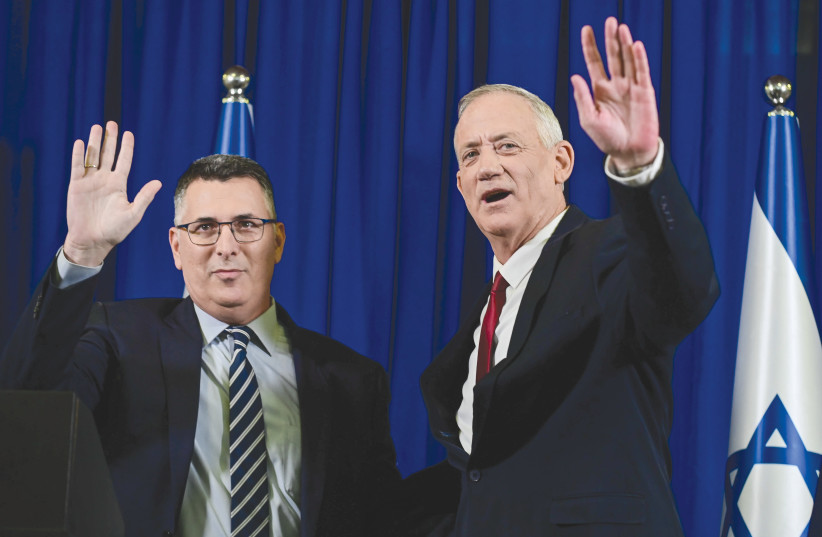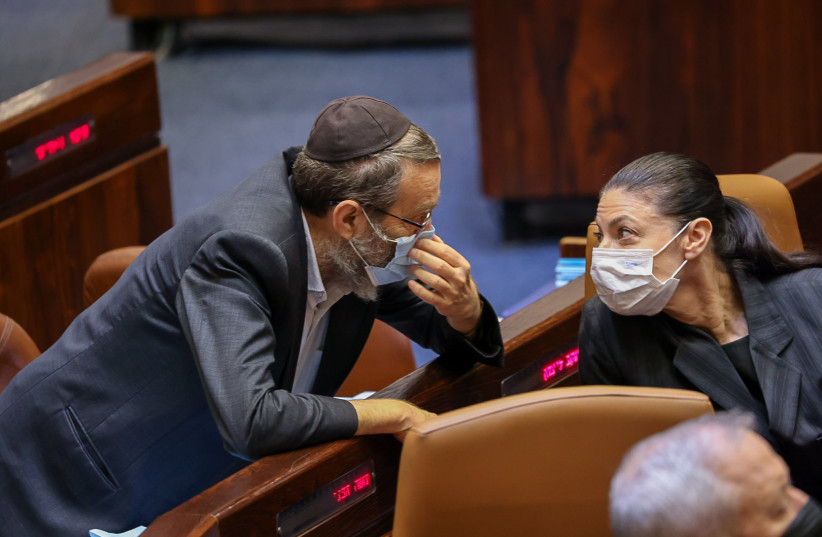Most Israeli voters do not want a government including the ultra-Orthodox (haredi) parties like Shas or United Torah Judaism (UTJ), a new poll by the Hiddush nonprofit organization published this week has found.
Some of the coalition faction leaders have signaled their intent to include UTJ or Shas in a future government in a bid to increase pressure on the parties to break away from their longtime pact with opposition head Benjamin Netanyahu's Likud Party and increase the number of potential allies in the Knesset.
The Israeli center's views on haredi parties
Defense Minister Benny Gantz, who leads the Blue and White: New Hope (BWNH) Party, has said in multiple interviews since election season began that he is the only political figure that can "unite the house" as he has not been "vetoed" by the ultra-Orthodox parties.
However, a majority of Gantz's voters oppose the defense minister's plan, according to the poll, conducted by Smith Research Institute.
An overwhelming 79% of BWNH voters said they are against the inclusion of haredi factions in the next coalition. Voters of other parties that place themselves at the center of the Israeli political spectrum also overwhelmingly oppose a government with Shas and UTJ, one that would likely see secular parties making a number of concessions on religious matters during coalition negotiations.

Some 89% of Prime Minister Yair Lapid's Yesh Atid voters voiced their opposition to making such concessions, along with 90% of Yisrael Beytenu voters. Results were even more one-sided among the Left wing, with Labor voters reporting 94% disapproval of a haredi government while every Meretz voter who participated in the poll (100%) said the same.
Right divided on haredi question
A distaste for the ultra-Orthodox parties was also felt on the Right, with 79% of Interior Minister Ayelet Shaked and Communications Minister Yoaz Hendel's Zionist Spirit voters opposing a government with the haredim. The Likud voter base is the most divided on this issue, with 39% opposing a government with the ultra-Orthodox, despite Shas and UTJ almost certain to be a part of any Netanyahu-led government.
In addition, three-fourths of all undecided voters agreed with the majority of voters in their opposition to a coalition with the ultra-Orthodox parties.
'Israelis want to be freed from religious coercion'
Hiddush - For Religious Freedom and Equality is an Israeli NGO dedicated to promoting the separation of church and state in Israel as well as ensuring 'equal burden' between the secular and haredi sectors.
Attorney and rabbi Uri Regev, Hiddush CEO, said the survey's results clearly conveyed that most of the Israeli public "wants to be freed from religious coercion."
"Despite Lapid, Gantz, [Justice Minister Gideon] Sa'ar and [Transportation Minister Merav] Michaeli all recently expressing hope of cooperation with the haredi factions in the Knesset... it is clear that is not their voters' wish," he said.

"Most of the public wants to be freed from religious coercion, rather than perpetuate it."
"Most of the public wants to be freed from religious coercion, rather than perpetuate it"
Hiddush CEO Rabbi Ori Regev
According to the NGO, some 800 respondents over the age of 18 participated in the poll, conducted online and by phone over two days.
